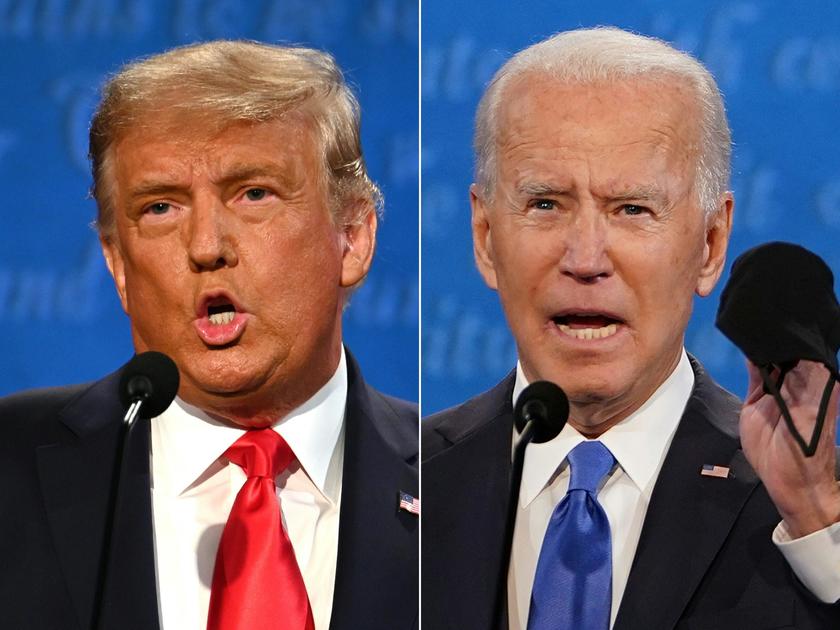In the debate Thursday, viewers mostly want to hear about Joe Biden and Donald Trump’s plans for the country and their achievements as president, more than critiques of each other.
Some will also be looking for whether or not these men have the mental and cognitive health to serve (a concern that voters have expressed to some degree about each of the candidates in previous polls).
Voters generally agree on what they want the candidates to say, but views diverge on how they should say it. Democrats want Mr. Biden to take a more forceful tone, while Republicans want Trump to take a more polite one.
In a contest where so many have said they’re already decided, relatively few watchers think they’ll see something that could change their votes. Instead, more will be watching to see how the candidates perform. There are some who say they will be watching for entertainment.
There are some indications Democrats are feeling more apprehensive than Republicans. Democrats aren’t as sure their candidate will “win” the debate. They think Mr. Biden needs to avoid mistakes, more so than Republicans think Trump does. And fewer Democrats than Republicans plan to watch the debate live in the first place.
There are about one in five voters planning to watch who are looking to the debate to help them decide who to vote for – this is the case for younger voters more than it is for older voters.
Respondents were allowed to voice multiple reasons.
Whether or not they watch it live, voters nationwide overwhelmingly think former President Trump should be more polite than forceful in the debate, and that includes a majority in his own party.
Most Democrats want to see Mr. Biden take a forceful tone, as opposed to a polite one.
More voters expect Trump will win the debate. Republicans are more confident Trump will prevail than Democrats are about Biden.
Independents pick Trump over Biden to win the debate, by two to one, but just as many are unsure of who will win.
What do the candidates need to do?
Generally, voters think each candidate needs to accomplish many of the same things in this debate. Primarily, it is to explain their plans for the future. Partisans tend to feel their party’s presumptive nominee should inspire confidence.
More voters think Biden needs to avoid mistakes than think Trump does.
More Democrats say that about Mr. Biden than Republicans say that about Trump.
The economy, inflation, democracy, crime and the border are top issues for voters, so those tuning in may be looking for what the candidates have to say about these topics.
What impact could it have?
Relatively few — about a third of those who plan to watch at least some coverage of it — think it’s possible that they could learn something from the debate that could change their opinions.
Who will watch?
About six in 10 voters plan to watch all or parts of the debate live; the rest say they’ll watch highlights or not much coverage of it at all.
More Republicans than Democrats plan on watching it. Voters who are thinking “a lot” about the presidential campaign are particularly likely to tune in and watch the debate live.
This CBS News/YouGov survey was conducted with a nationally representative sample of 2,032 U.S. adult residents, including 1,514 registered voters, interviewed between June 24-26, 2024. The sample was weighted according to gender, age, race, and education based on the U.S. Census American Community Survey and Current Population Survey, as well as past vote. The margin of error for the sample of registered voters is ±3.5 points.
#CBS #News #poll #debate #Democrats #forceful #Biden #GOP #polite #Trump #hear #issues,
#CBS #News #poll #debate #Democrats #forceful #Biden #GOP #polite #Trump #hear #issues
